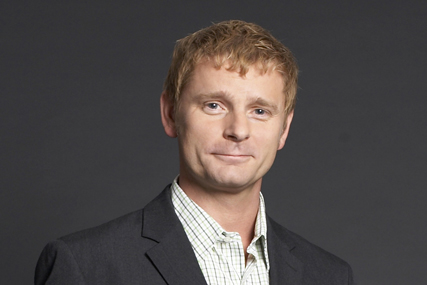As we set forth into Q4, and many of us lock and load for the Christmas rush, spare a thought for your humble media buyer.
You might have sales targets to meet, websites to keep online, customers to keep happy. But the media buyer has all that pressure and the requirement to squash your media into the boxes dictated by agency deals. If early placements went awry, now is the last chance to pull that position back; you might end up in some odd places if you're not on the ball.
Small clients think they get better rates by being part of a big agency's portfolio. They figure the overall average is so much stronger that they benefit even if they don't get the sharpest prices. Big clients, on the other hand, generally do get the best pricing, but nevertheless agency dealmakers are past masters at playing 'find the lady', and even these advertisers often don't know what they're really paying.
The real value of agency deals goes to the agency, not the advertiser. Some agencies are rumoured to earn 150% of their profits this way, by retaining volume discounts passed back to them by the media owner.
While many client contracts demand these discounts be passed on, it can be pretty hard to identify them when they are run as separate income streams outside a client's account. So these deals thwart transparency, creating the illusion of value for clients and allowing agencies to claw back margin.
It isn't just the effect on agency/client business that makes these deals toxic.
Theoretically, a media owner knows that if it invests in the right content, audiences, and then advertisers, will follow. But agency deals at best introduce a lag to this, and at worst decouple this investment rationale; agencies might be more influenced by the kickback than the media opportunity, corroding the incentive for content investment by publishers.
When I said this last week on stage in a panel session, my observations were wafted away with the comment that this was an out-of-date view, and that 'rebates now are more transparent'. Unfortunately, this dismissal was from the representative of an agency that just four months ago settled a EUR30m case brought by a client that accused it of retaining undeclared discounts.
Sir Martin Sorrell has rightly complained of uneconomic price competition in the media business, and nowhere has this been more keenly felt than in digital. Here, smart clients are shown a direct line between resources and return, where value becomes the key driver of a relationship.
Cost-cutting, however, has often proved more attractive to clients and procurement departments that struggle to sell this argument internally, and agencies have vied to reduce fees accordingly. This is a massive missed opportunity for clients that could be chasing real value, but instead chase illusory discounts. I've lost count of the number of procurement exercises that start with media costs and somehow never quite make it to value.
The reality is that the 'poor exploited client' story doesn't stand up. If I bought a 40in TV in the pub for £50, the police would justly accuse me of knowingly receiving stolen goods, and I find it hard to believe that those clients with rock-bottom fees believe that's how the agency earns its money. Five minutes with the back of a fag packet should suffice. This isn't just passivity. I've been asked by clients to subsidise fees from media rebates and even other clients' accounts; requests I'm sure were agreed to elsewhere.
Digital or offline, it's time advertisers and agencies put probity back on the map, which won't happen until clients respect agencies' right to make a return.
Andrew Walmsley is a digital pluralist
30 SECONDS ON ... SIR MARTIN SORRELL'S ECONOMIC SHAPES
- In August, WPP chief executive Sir Martin Sorrell described the global economic recovery as 'LuVVy-shaped'. In a financial report to the City, he wrote: 'The expected LUV recovery - L-shaped in western Europe, U-shaped in the US and V-shaped in (Brazil, Russia, India and China and the emerging economies) - is now more LVV-shaped, with the US, in particular, recovering much more strongly than anticipated.'
- In a lecture in 2009, Sorrell said the world was experiencing an 'L-shaped' recession, which should not be confused with the 'bath-shaped' recession of the early 90s. His speech was entitled 'Recession. Bath, shower or whirlpool, which is it to be?'
- It should be noted that last year's recession, according to Sorrell, was actually 'italicised-L-shaped', which denotes a decline followed by 'a flattish recovery with some upside'.
- Sorrell is expected to unveil his next ideogram to the City in 2011.


